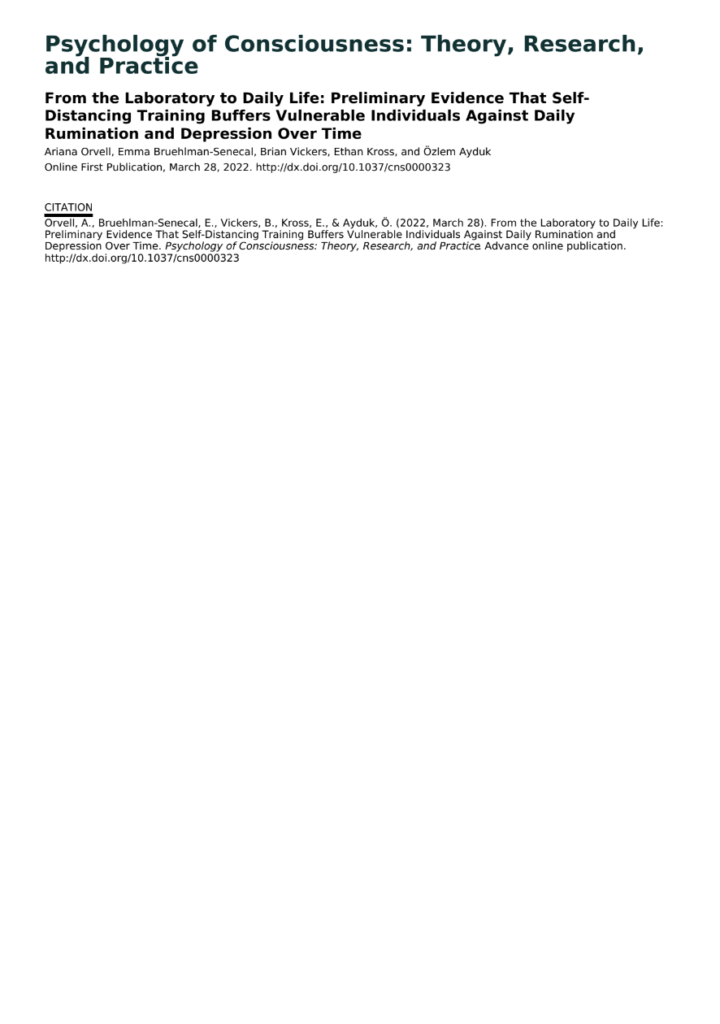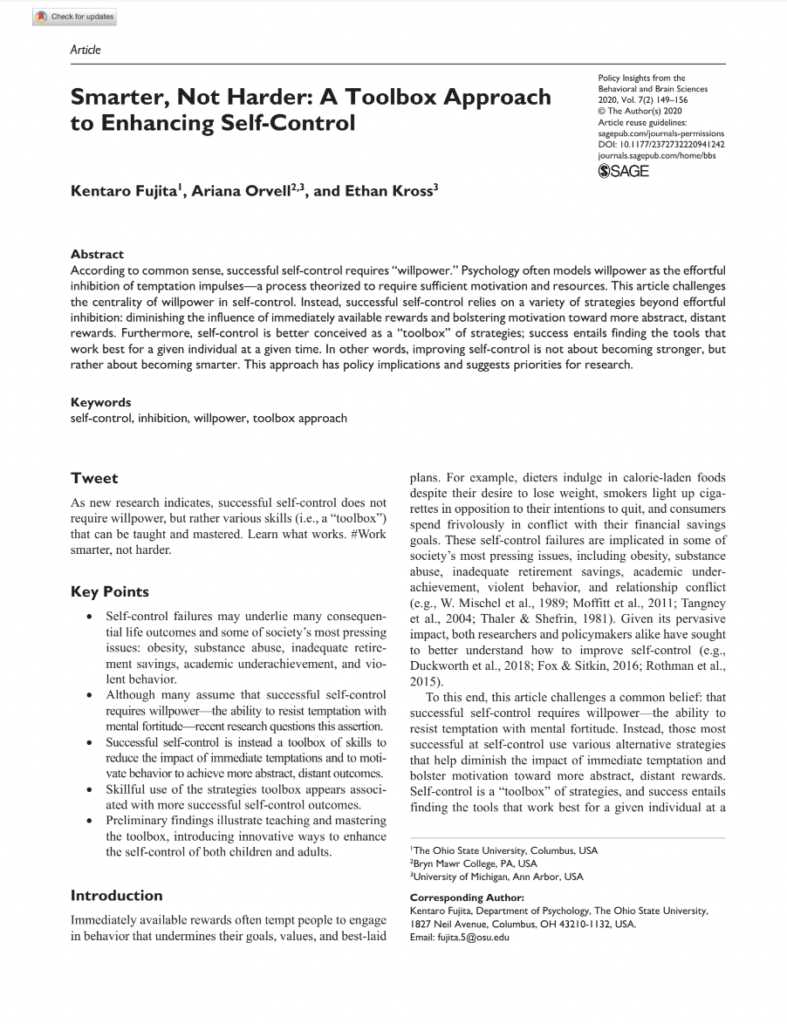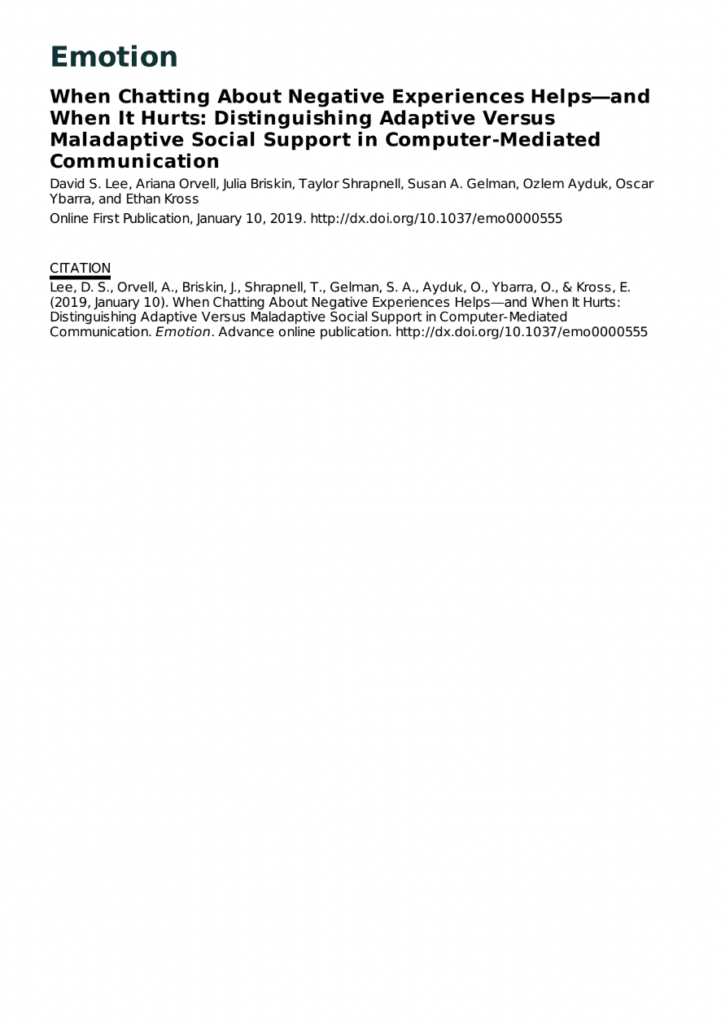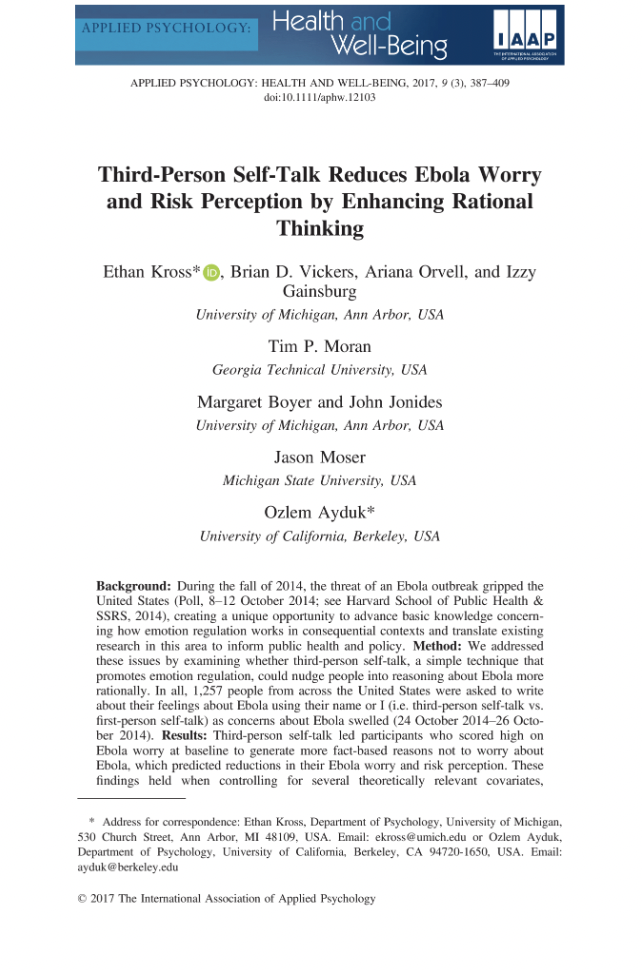Can people’s ability to control their thoughts, feelings or behaviors to align with their goals be meaningfully improved?
I am also interested in how the basic mechanisms that support emotion regulation in the lab operate in the real world. I believe these insights have the potential to equip people with tools that they can use to regulate their thoughts, feelings, and behaviors in daily life.
In collaboration with teachers, as well as researchers at the University of Michigan, the University of Pennsylvania, Virginia Tech, and the University of Virginia, I am working on a school-based intervention that teaches students the science behind self-control. As a first step, we partnered with teachers from across the country to develop a curriculum that addresses three questions:
- What is self-control and why is it important?
- What are the building blocks of self-control?
- How can these principles be put into action?
We are in the process of piloting this curriculum before conducting a large-scale Randomized Controlled Trial which will examine its effect on students’ academic achievement and well-being.
In other studies, I’ve found that targeted interventions that train or cue people to adopt a more distanced perspective through the words they use to reflect on the self can reduce their anxieties concerning real-world concerns, and buffer emotionally vulnerable individuals against increases in depression over time.
- How can people effectively regulate their thoughts, feelings and behavior to meet their goals?
Papers:




